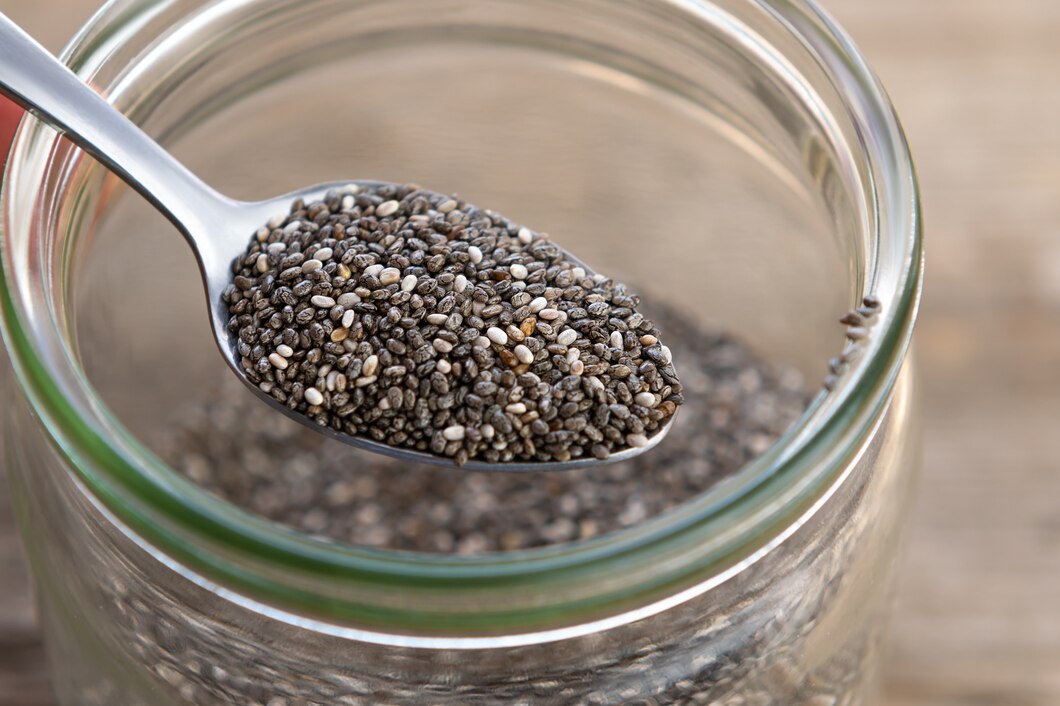Chia seeds are small, nutrient-dense seeds that come from the Salvia hispanica plant. Despite their tiny size, they pack a powerful nutritional punch and offer several health benefits. Here’s a breakdown of the nutritional profile and health benefits of chia seeds:
Nutritional Profile (per 1 ounce or 28 grams):
- Calories: Approximately 137 calories.
- Protein: Around 4.4 grams, making them a good plant-based protein source.
- Fat:
- Omega-3 Fatty Acids: High content, providing about 4.9 grams of alpha-linolenic acid (ALA), which is beneficial for heart health.
- Omega-6 Fatty Acids: Moderate amounts.
- Carbohydrates:
- Dietary Fiber: An impressive 10.6 grams, contributing to digestive health and helping with satiety.
- Net Carbs: Approximately 1 gram, making chia seeds a low-carb food.
- Vitamins and Minerals:
- Calcium: Around 177 milligrams, contributing to bone health.
- Phosphorus: Approximately 265 milligrams.
- Magnesium: About 95 milligrams.
- Manganese: A good source, providing around 0.6 milligrams.
- Zinc, Copper, Iron, and Niacin: Present in smaller amounts.
Health Benefits:
- Rich in Antioxidants: Chia seeds contain antioxidants that help protect the body from oxidative stress and inflammation.
- Heart Health: The high omega-3 fatty acid content, particularly ALA, may contribute to heart health by reducing inflammation and improving cholesterol levels.
- Blood Sugar Regulation: The soluble fiber in chia seeds can slow down the absorption of sugar, helping regulate blood sugar levels.
- Digestive Health: Chia seeds are an excellent source of fiber, promoting healthy digestion and regular bowel movements.
- Weight Management: The combination of fiber and protein in chia seeds can contribute to feelings of fullness, potentially aiding in weight management.
- Bone Health: Chia seeds are a good source of calcium, phosphorus, and magnesium, supporting bone health.
- Hydration: When soaked in liquid, chia seeds form a gel-like substance that can help retain water, contributing to hydration.
- Versatile in Cooking: Chia seeds can be easily incorporated into various dishes, including smoothies, yogurt, puddings, and baked goods.
It’s important to note that while chia seeds offer numerous health benefits, they are not a cure-all. As with any food, moderation is key, and it’s essential to maintain a well-balanced diet. If you have specific health concerns or conditions, it’s advisable to consult with a healthcare professional or a registered dietitian before making significant changes to your diet.

